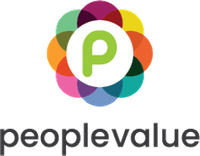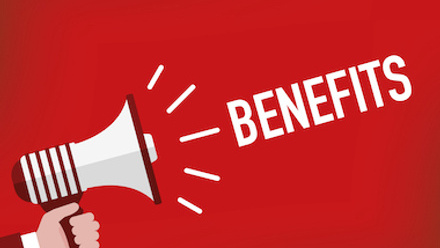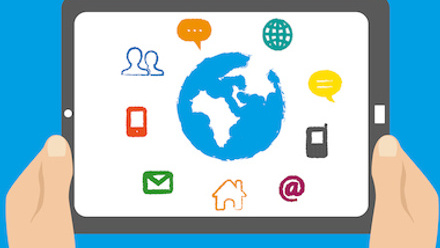Engaging millennial employees: should they be treated differently?

A quick online search of ‘millennials’ will soon find you a plethora of articles, reports and research on a generation so heavily stereotyped and speculated, it’s hard to know the truth.
The many different and sometimes contradictory ideas about the so-called ‘me generation’ bleed into the business world, which can lead to them being treated as a puzzle that must be solved. What motivates millennials? How do we keep them engaged? With only 29% of millennials reportedly engaged at work, according to Gallup’s How Millennials Want to Work and Live (2016) research, it’s clear that more needs to be done to understand this generation of employees.
To tackle this issue, it’s often suggested that employers should tailor their benefits and rewards to meet the specific needs of millennials. But is this right? Millennials make up the fastest growing segment in the workforce, so of course it’s important to understand their wants and needs, but is it effective to take such a prescriptive approach to employee engagement?
The millennial professional
If we take the stereotypical traits literally, millennial employees are lazy, entitled, avocado-eating job-hoppers that are addicted to their phones and want everything in an instant. For any business, that’s a tricky type of person to motivate, inspire and engage with. However, if we put the stereotypes to one side, there’s actually numerous research that highlight patterns of behaviour which are useful to know if you’re a Reward professional.
A lack of loyalty
Millennials are considered less loyal and less confident in business than any other generation. Deloitte’s 2018 Millennial Survey Report found that 49% of millennials would, if they had the choice, quit their current jobs in the next two years. ‘Job-hopping’ is an increasingly common trait which suggests that employers are missing the mark when it comes to engaging and retaining millennial employees. But why is this?
Conflicting values
Further findings from Deloitte suggest that businesses don’t prioritise issues that matter to millennials. Their survey found that while many businesses concentrate on financial profitability, millennials feel that they should prioritise having a positive impact on society by focusing on job creation, career progression, diversity and inclusion in the workplace and more. For millennial employees, it’s more about people than it is about numbers.
Adding to this idea, Millennial Mindset’s survey revealed that company culture is the most important consideration for millennials that are deciding where to work. A business’s purpose, vision, values and reputation were rated as greatly important and were proven to play a huge part in millennials’ decision to choose an employer and, equally, leave one.
The need for feedback
Growing up in world of instant gratification and connectivity through social media, dating sites and the like, it comes as no surprise that many millennials expect a sense of real-time feedback in the working environment too. Gallup’s research highlights that millennials that have regular meetings with their manager are more than twice as likely as their generational peers to be engaged at work.
Regular communication seems to help millennials feel more connected to their employers, which results in them feeling more motivated, engaged and loyal. For businesses struggling to retain millennial employees, perhaps they need to consider whether they keep their employees in the loop and communicate with them enough.
Flexibility as standard
Over the years, there has been a shift which has seen the rise of flexible working patterns to accommodate a better work-life balance. While the traditional 9–5 working day is still common in many workplaces, millennials, on the whole, want the option to work flexibly. Studies show that 88% of millennials consider their work-life balance when choosing a job, while 74% say that flexible work schedules are their priority. On top of this, Deloitte’s research into millennials found flexible working had a direct influence on their loyalty to an employer.
It's all about output over input it seems. In other words, flexi-hours, remote working and other forms of flexible working shouldn’t diminish the amount of work produced by employees. In fact, allowing employees to work to their own schedule can even boost productivity.
Research has uncovered some millennial trends that are definitely worth noting. But while specific values, interests and patterns of behaviour exist among the millennial generation, it’s crucial to remember that they aren’t always the rule.
Enjoying this article?
Read more about how to support millennial employees.
Want to know how other organisations engage millennials? Why not ask your peers on rebaLINK, our networking and due diligence platform.
Contact the Associated Supplier to discuss workplace mortgage advice.
What’s the answer?
To engage millennial employees, we believe that an intergenerational, diverse strategy is best. Why focus on one generation? If you’re delivering benefits, reward and/or wellbeing programmes, they should meet the needs of all of your employees.
Essentially, your approach should be compatible with the diverse nature of your workforce. This means that rather than tailoring your offering to one specific generation, you should tailor it to the unique needs of your employees. Of course, you should take into account the interests, motivators and values of your millennial employees, but that should be the case for everyone in your workforce.
There is no ‘recipe for success’
Allowing stereotypes to shape your employee engagement strategy can be dangerous because it won’t reflect the nuances that exist within each generation. Not all millennials are huge fans of avocado on toast. Not every millennial you meet will be obsessed with social media. That’s why it’s important to understand the specific interests of your employees as a whole. Surveys, focus groups and regular communication with your employees will help you gauge what kind of things motivate and inspire them.
For example, while millennials are a digitally native generation, you might find that many of your millennial employees prefer more traditional communication methods when it comes to your benefits and rewards programme. Capturing this information will allow you to engage with your employees in a more effective way.
There is no ‘recipe for success’ when it comes to engaging millennial employees, so don’t take a ‘one size fits all’ approach.
Get the fundamentals right
What is important is to get the fundamentals of employee engagement right. Engage for Success’s Four Enablers of Employee Engagement are a useful reference point and will help you understand how to successfully engage your employees:
- Strategic Narrative
- Engaging Managers
- Employee Voice
- Integrity
Nurturing these elements will allow you to create a strong foundation of engagement, from which you can then consistently refine your approach to meet the needs of all of your employees, not just millennials.
So, should we treat millennials differently when it comes to employee engagement? Yes and no.
Categorising your employees can be useful, but to prescribe a particular generation with a specific offering isn’t all that effective. Millennials, like other generations, will have their own priorities and values which will have an influence on their levels of engagement, job satisfaction and loyalty to your business, but these won’t be the same for everyone. People are individuals. That’s why your approach to employee engagement should be cross-generational and inclusive, striking the right balance so that every employee gets value.
This article is provided by peoplevalue.
In partnership with peoplevalue – The Employee Engagement Company
We are a leading provider of employee reward&recognition, benefits delivery&wellbeing solutions.







